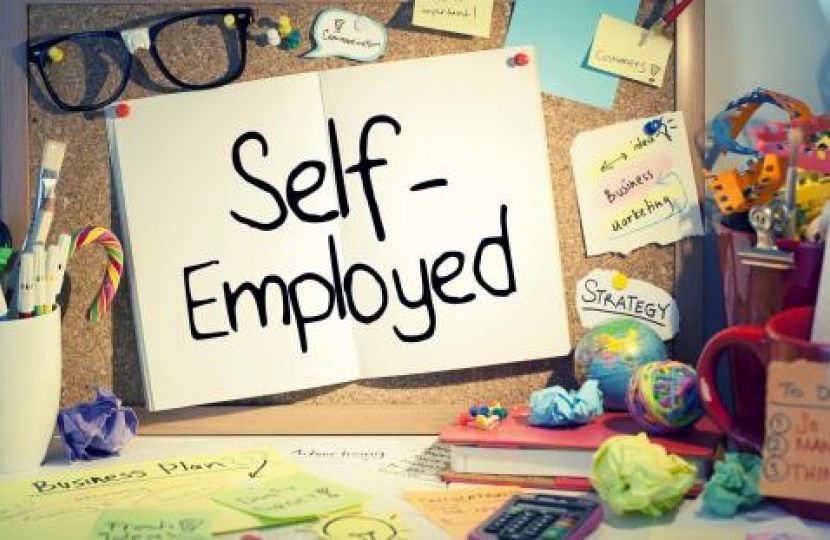Self-Employed Income Support Scheme
The Chancellor this evening confirmed that the Government is acting to protect the self-employed during the Coronavirus pandemic. He has introduced the Self-Employed Income Support Scheme which will cover 95% of self-employed people and gives them the same support offered to other workers.
The Government will pay self-employed people a taxable grant worth 80% of their average monthly profits over the last 3 and a half years, up to the value of £2,500 per month.
The grant will be in place for up to three months and self-employed people will be able to claim for this grant whilst continuing to carry out business.
In short, the details of the Scheme are:
- The grant will pay up to 80% of average monthly profits over the last three years, up to the value of £2,500 per month.
- If you have only be trading for one or two years, the Government will look at the figures available. You do not need three years of records.
- It is open to anyone with trading profits up to £50,000.
- You must have a tax return for 2019 to apply.
- The majority of your income must come from self-employment.
- HMRC will contact those who are eligible.
- The Scheme will be available no later than the beginning of June.
- There is a delay to allow those who haven’t filed their tax return for 2018/19 an additional four weeks, from today, to do that.
Support Already in place to support the Self-Employed
Today (Wednesday 25/03/2020) in the House of Commons, the Prime Minister said that he understands the situation many self-employed people face at the moment and that the Government is determined to find a way to support them. A further announcement is expected very shortly.
What we are already doing for the self-employed:
• We are deferring income tax self-assessment payments due in July 2020 to January 2021. This is an automatic offer with no applications required.
• We are supporting people through the welfare system so that nobody is penalised for doing the right thing. Those on contributory ESA will be able to claim from day 1, instead of day 8. And we are relaxing the requirement for anyone to physically attend a jobcentre – everything can be done by phone or online.
• We are increasing Universal Credit and Working Tax Credit by £1,000 a year – a cash injection of nearly £7 billion in the welfare system. We are increasing the Universal Credit standard allowance, for the next 12 months, by £1,000 a year. We will also increase Working Tax Credit by the same amount for a year.
• We are suspending the minimum income floor for twelve months. That means self-employed people can now access, in full, Universal Credit at a rate that is equivalent to Statutory Sick Pay for employees.
• We are introducing a three month mortgage holiday for those in difficulty due to coronavirus. So that people will not have to pay a penny towards their mortgage while they get back on their feet.
• Self-employed people may be eligible to receive support with their tax affairs through HMRC’s Time to Pay service. Arrangements are agreed case-by-case. Businesses can contact HMRC’s new dedicated COVID-19 helpline from 11 March 2020 for advice.
• The Coronavirus Business Interruption Loan Scheme is available to self-employed individuals with an eligible business entity. By providing an 80 per cent government guarantee on finance facilities up to £5 million, this scheme will help more businesses access the finance they need.
• We have delayed changes to IR35. We have delayed bringing in changes to IR35 from April 2020 until April 2021, giving self-employed people more time to prepare for the reforms.
• Introducing emergency legislation to protect renters, so that no one gets evicted if they cannot pay their rent. Emergency legislation will be taken forward as an urgent priority so that landlords will not be able to start proceedings to evict tenants for at least a three-month period. As a result of these measures, no renters in private or social accommodation needs to be concerned about the threat of eviction.
• Introducing new emergency measures with the energy industry to keep gas and electricity flowing. New emergency measures with the energy industry will protect those most in need. Customers with pre-payment meters who may not be able to add credit can speak to their supplier about options to keep them supplied, benefitting over 4 million customers. More broadly, any household in financial distress will be supported by their supplier, which could include debt repayments and bill payments being reassessed, reduced or paused.
Aren’t you expecting self-employed people to get by on £94 a week – how is that fair?
• SSP would only be for a 14 day period if someone needs to take time off from their self-employed work.
• But SSP is also available in addition to UC and other benefits – such as child benefit and council tax support.
How are these measures for the self-employed different to what has already been announced at Budget?
• The Budget announce a temporary relaxation of the earnings rules (known as the Minimum Income Floor) for self-employed claimants who are sick or self-isolating according to government guidance. This has already come into effect.
• This announcement is relaxing the rules for all self-employed claimants, not just those directly impacted by the virus, ensuring those affected by the economic impact of the outbreak are supported, and feel able to follow government guidance on self-isolation and social distancing.


